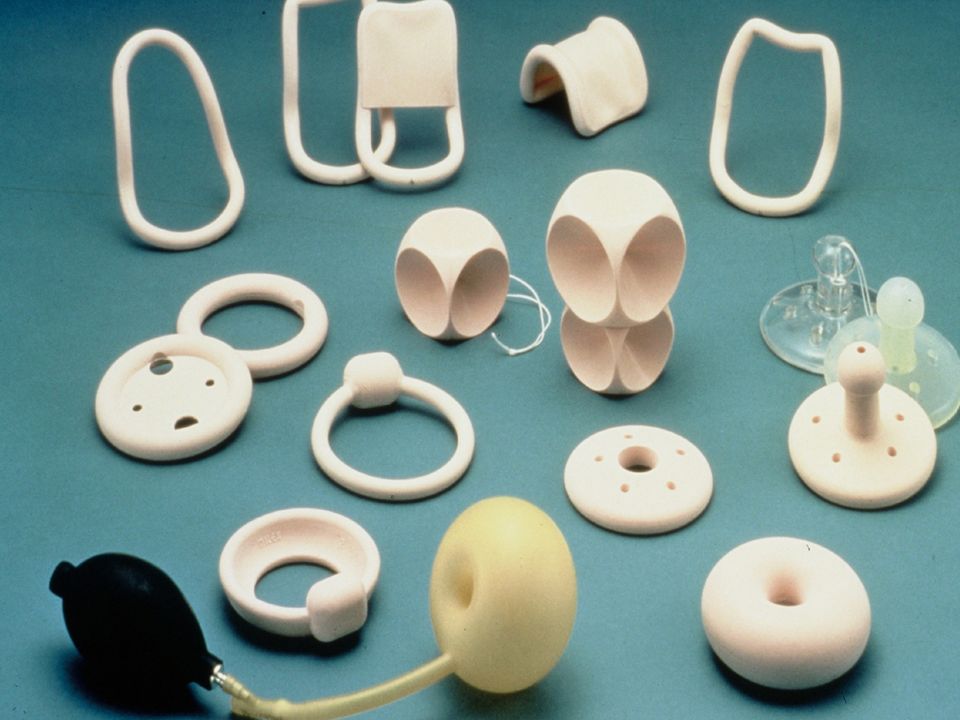
The global pessary market is experiencing significant growth, driven by rising awareness of incontinence and pelvic floor disorders. According to a new report by Future Market Insights, the market size reached an estimated US$ 316 million in 2022 and is projected to surge at a compound annual growth rate (CAGR) of 10.2% from 2022 to 2032. By the end of the forecast period, the market is expected to reach a staggering US$ 831.3 million.
Pessaries, one of the oldest medical devices, offer a safe and non-surgical solution for treating stress urinary incontinence (SUI) and pelvic organ prolapse (POP). These silicone or rubber devices are inserted into the vagina to provide support to the pelvic floor muscles, alleviating symptoms of incontinence and prolapse. When selecting a pessary, factors such as the severity of SUI, presence of prolapse, and level of sexual activity are all considered to ensure optimal patient comfort and efficacy.
Get Access to Sample Now: https://www.futuremarketinsights.com/reports/sample/rep-gb-15899
They are intended to support the epithelial duct and bladder wall while also elongating and gently condensing the urethra against the pubis. When intra-abdominal pressure rises, this structural configuration reduces, and in many cases eliminates, leakage, effectively resolving incontinence. An incontinence pessary, similar to a vaginal sling, supports the ureterovesical junction from this position.
According to estimates, 30% of women between 30 to 60 years are affected, compared to 1.5 to 5% of men. Stress causes urinary incontinence, which can happen during and after pregnancy. Weight gain, urethral sphincters, menopause, and childbirth have all been connected to it.
According to the American Urological Association, 25% to 35% of men and women in the United States struggle with stress urinary incontinence. The disease has affected over half billion people worldwide. A urinary tract infection, urethral sphincters, menopause, and pregnancy are all factors that lead to the development of stress urinary incontinence symptoms, creating a market for pessaries.
Key Takeaways:
- The global Pessary Industry is expected to grow significantly in the coming years, driven by the increasing prevalence of pelvic organ prolapse and urinary incontinence, as well as the growing awareness of pessaries as a non-surgical treatment option for these conditions.
- North America is expected to remain the largest market for pessaries throughout the forecast period, followed by Europe and Asia Pacific.
- Ring pessaries are expected to be the most popular type of pessary during the forecast period.
- Silicone pessaries are expected to be the most popular material for pessaries during the forecast period.
- Hospital pharmacies are expected to be the most popular distribution channel for pessaries during the forecast period.
Our Profound Methodology Insights: https://www.futuremarketinsights.com/request-report-methodology/rep-gb-15899
Key Companies Covered:
- MedGyn Products, Inc.
- Cooper Surgical Inc.
- Personal Medical Corp.
- Panpac Medical Corp
- Smiths Medical
- Thomas Medical
- Artisan Medical
- Bioteque America, Inc.
- Integra LifeSciences Corporation
- Arabin GmbH & Co.
- Medgyn Products, Inc.
- Wallach Surgical Devices
Some of the recent developments in the Pessary Industry are mentioned below:
- In February 2022, Cooper Companies agreed to purchase Cook Medical’s Reproductive Health division, which manufactures noninvasive fertility, obstetrics, and gynecology devices. Cooper will pay US$ 875 million in total, with US$ 675 million paid at closing and the remaining US$ 200 million paid in four US$ 50 million annual installments.
- In February 2022, Theramex, a global pharmaceutical company specializing in women’s health expanded its initial collaboration with Endoceutics to commercialize Intrarosa in Australia. Intrarosa is the first and only DHEA treatment that has been approved for postmenopausal women suffering from moderate to severe vulvovaginal atrophy.
- In August 2021, Liv Labs developed a reusable female comfort pessary that does not require a doctor’s prescription. Patients suffering from incontinence are currently fitted for pessaries, which must be worn for six months before being removed.
The Liv Labs pessary is soft, smooth, and squishy, making insertion and removal easier. It is made of medical-grade silicone. Women can use it whenever they want, whether it is all day or just for a quick trip to the gym.
Purchase Now to Access Exclusive Data: https://www.futuremarketinsights.com/checkout/15899
Market Segments Covered in Pessary Industry Analysis:
By Type:
- Gellhorn
- Ring
- Donut
- Other Types
By End-Use:
- Hospitals
- Ambulatory Surgical Centres
- Clinics
By Region:
- North America
- Europe
- Asia Pacific
- Middle East and Africa
- Latin America
About Future Market Insights (FMI)
Future Market Insights, Inc. (ESOMAR certified, recipient of the Stevie Award, and a member of the Greater New York Chamber of Commerce) offers profound insights into the driving factors that are boosting demand in the market. FMI stands as the leading global provider of market intelligence, advisory services, consulting, and events for the Packaging, Food and Beverage, Consumer Technology, Healthcare, Industrial, and Chemicals markets. With a vast team of over 400 analysts worldwide, FMI provides global, regional, and local expertise on diverse domains and industry trends across more than 110 countries.
Contact Us:
Future Market Insights Inc.
Christiana Corporate, 200 Continental Drive,
Suite 401, Newark, Delaware – 19713, USA
T: +1-845-579-5705
For Sales Enquiries: sales@futuremarketinsights.com
Website: https://www.futuremarketinsights.com
LinkedIn| Twitter| Blogs | YouTube